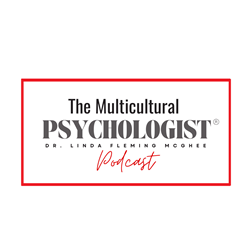Cultural Formulation Across Clients and Settings Lessons Learned from the Use of the Wright-Constant
SPA E-Learning Center | 2025 SPA Convention
Abstract
Integrating cultural context into clinical practice is essential for providing effective, person-centered care and comprehensive, context-driven psychological assessments. The Wright-Constantine Structured Cultural Interview (WCSCI) offers a thorough and structured framework for understanding clients' cultural identities (i.e., race, gender, sexual orientation, socioeconomic status, disability status) and their influence on mental health. However, while it is evident that the WCSCI can be useful for adults in general outpatient mental health settings, little is understood about the application of the WCSCI in other settings and populations. This roundtable discussion will present case studies and conversations about using the WCSCI across a multitude of settings and populations, including with children and adolescents, veterans in hospitals, inpatient psychiatric hospitals, couples therapy, and forensics settings. We will speak to both the benefits and challenges of using the WCSCI in these different settings and lessons learned from the integration of context-specific cultural information in case formulations in these settings and populations. Attendees will learn about practical insights into how to better apply cultural formulation tools, namely the WCSCI, in their own practices and consider how to best integrate the WCSCI across diverse settings and populations.
Coordinator
Jordan Wright | New York University
Speakers
Aakriti Prasai | New York University
Jen Ying Zhen Ang | New York University
Brittany Matthews | New York University
Abby Mulay | Medical University of South Carolina
Goals & Objectives
1: Attendees will be able to describe the key components of the Wright-Constantine Structured Cultural Interview (WCSCI) and its relevance to clinical practice. Objective
2: Attendees will be able to identify at least three specific settings where the WCSCI has been applied and summarize the key benefits and challenges experienced in these contexts.
3: Attendees will gain practical insights into how to adapt the WCSCI framework for use with various populations, such as children, veterans, couples, and individuals in forensic or psychiatric settings. Objective
4: Attendees will reflect on and discuss how cultural information gathered through tools like the WCSCI can enhance their clinical formulations and improve treatment outcomes for diverse populations. Objective
5: Attendees will leave the session with actionable strategies to integrate cultural formulation tools like the WCSCI in their own practices, with a particular focus on context-driven modifications.

